Allen County growth continues in 2025, showcasing the county’s continued success. End-of-Year press release highlights successes.

News
Allen County Continues Growth in 2025

Greater Fort Wayne Inc. Vice President Adam Welch Named to ACCE’s Forty Under Forty Class of 2025
Greater Fort Wayne Inc. is proud to announce that Adam Welch, Vice President of Economic Development, has been named to the Association of Chamber of Commerce Executives Forty Under Forty class for 2025. Welch has had a strong impact on…
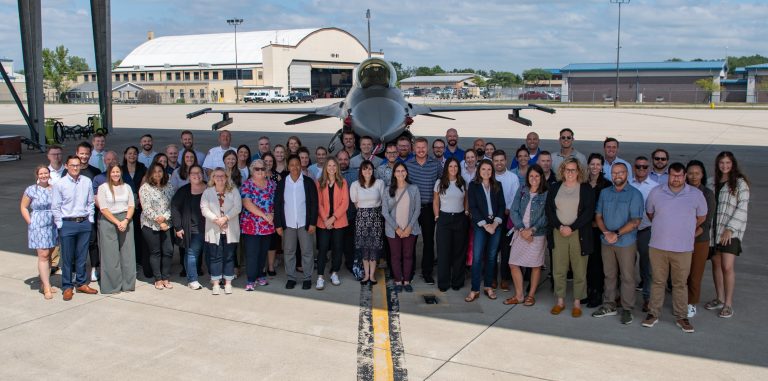
Applications available for Leadership Fort Wayne Class of 2026
Leadership Fort Wayne (LFW), the region’s premier leadership development program, is now accepting applications for its 2026 cohort. This highly regarded program is designed to equip and empower participants with the skills and knowledge necessary to drive meaningful and lasting…
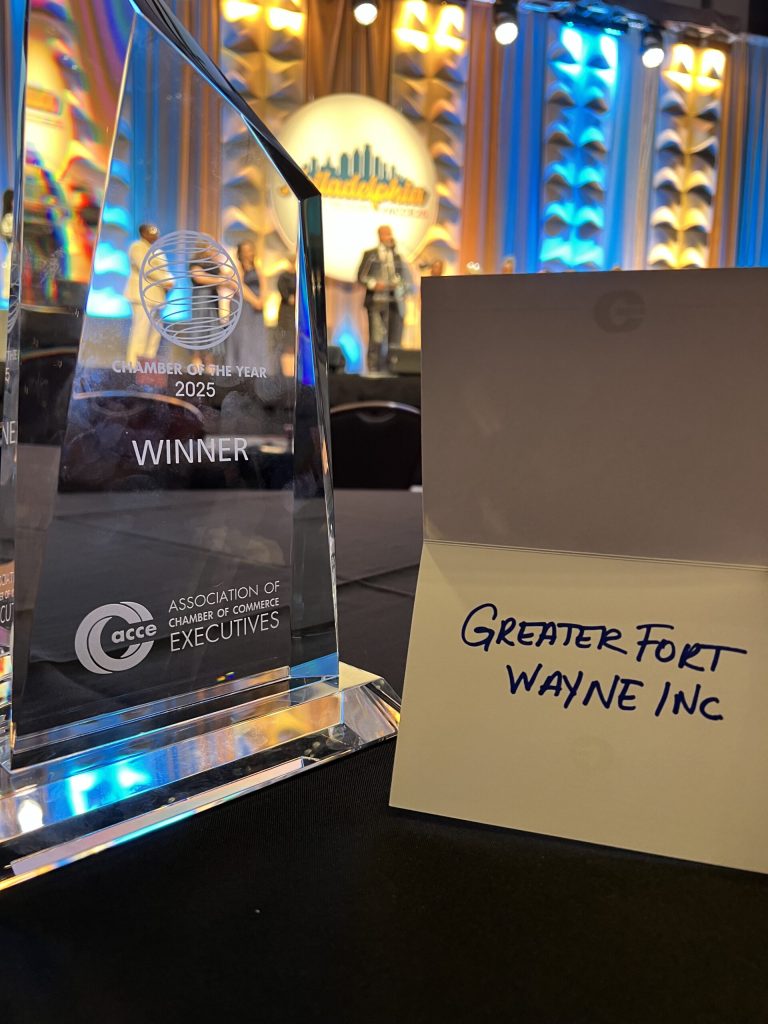
GFW Inc. Wins ACCE Chamber of the Year
Greater Fort Wayne Inc. has been named the 2025 Chamber of the Year by ACCE for outstanding leadership and community impact.
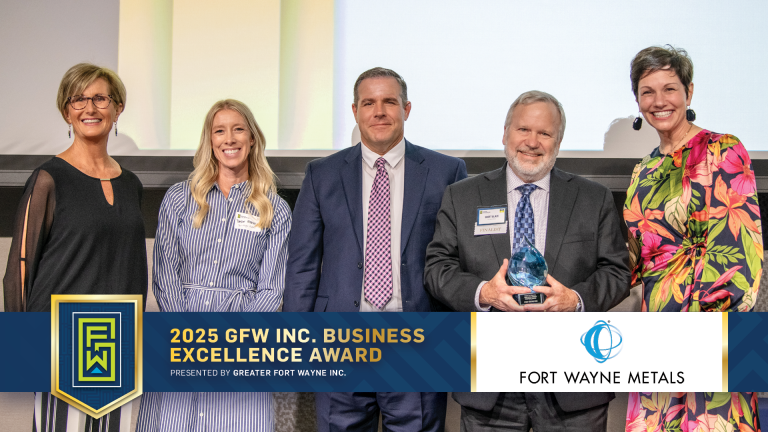
Greater Fort Wayne Inc. Celebrates Community and Business Excellence at 2025 Annual Meeting
Celebrating Progress: Highlights from the Greater Fort Wayne Inc. Annual Meeting and Awards Ceremony A sold-out crowd of nearly 600 community and business leaders gathered Thursday evening at the Parkview Mirro Center for Greater Fort Wayne Inc.’s 2025 Annual Meeting.…
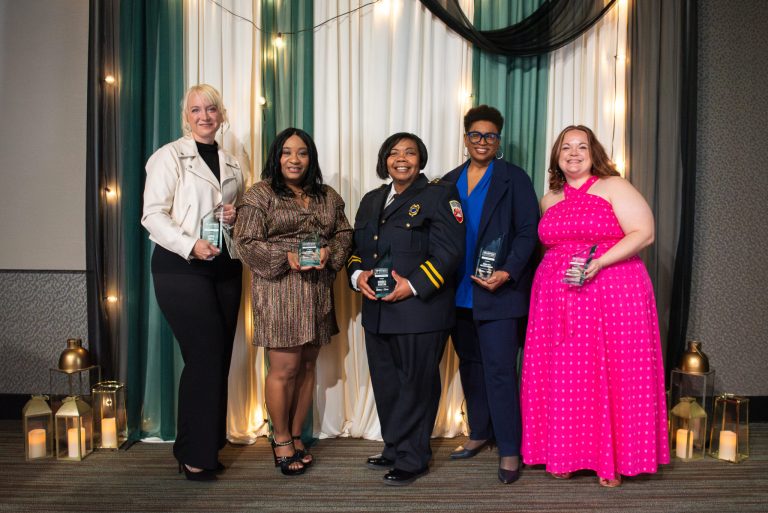
Ross, Clopton, Burton, Claypool, and Williams-Robbins win 2025 Champions of Change Awards
Meet the 2025 Champions of Change award winners—local leaders making a lasting impact in Allen County through vision and action.

Greater Fort Wayne Inc. President and CEO John Urbahns Named to Indiana 250 List
Honor Recognizes Leaders Throughout Indiana Greater Fort Wayne Inc. is proud to announce that President and CEO John Urbahns has been named one of Indiana’s 250 most influential leaders by IBJ Media. The Indiana 250 list honors the state’s most…
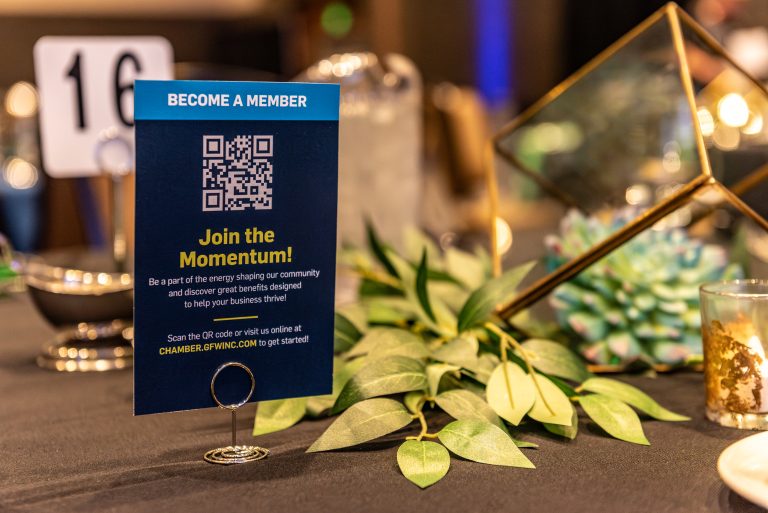
Greater Fort Wayne Inc. Announces Finalists for the Business Excellence Awards
Greater Fort Wayne Inc. is proud to announce the finalists for this year’s Business Excellence Awards. The awards ceremony will take place during GFW Inc.’s Annual Meeting event, which will be an exciting evening of reflection and forward-looking, celebrating the...
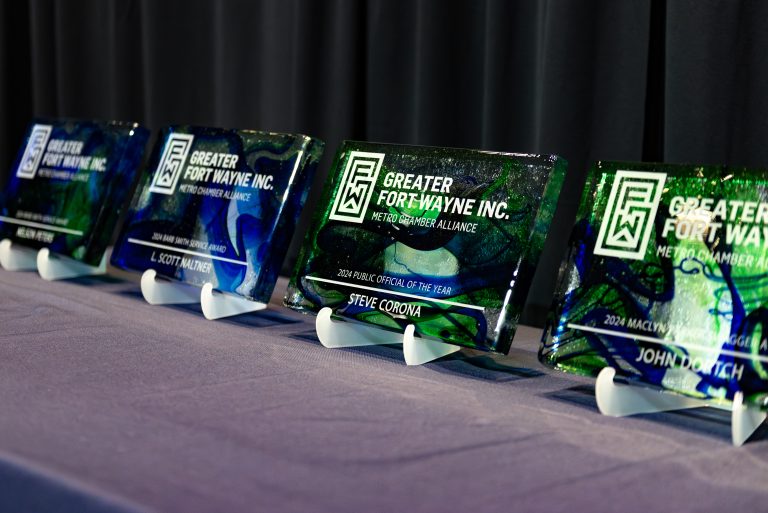
GFW Inc. Individual Annual Award Winners Announced
Each year, Greater Fort Wayne Inc. proudly celebrates the individuals and organizations driving positive change and meaningful progress throughout Fort Wayne and Allen County. These awards recognize outstanding leadership, innovation, and dedication to building a stronger, more vibrant community. We...
Greater Fort Wayne Inc. Announces Finalists for the Business Excellence Awards
Meet the finalists for Greater Fort Wayne Inc.'s Business Excellence Awards. Winners will be announced at the 2025 Annual Meeting.

Finalists named for 2025 Champions of Change Awards
Winners will be announced on May 21 at Awards Dinner 50 local leaders have been selected as finalists for the 2025 Champions of Change Awards. The awards celebrate those who mentor and empower women in Allen County. Winners will be...
Fort Wayne Ranks 5th in the Nation for Growth in Black-Owned Businesses
Custom headline A recent report from the Brookings Institution reveals that the Fort Wayne metropolitan area has achieved one of the highest growth rates in Black-owned businesses nationwide. Between 2017 and 2022, the number of Black-owned employer businesses increased by…
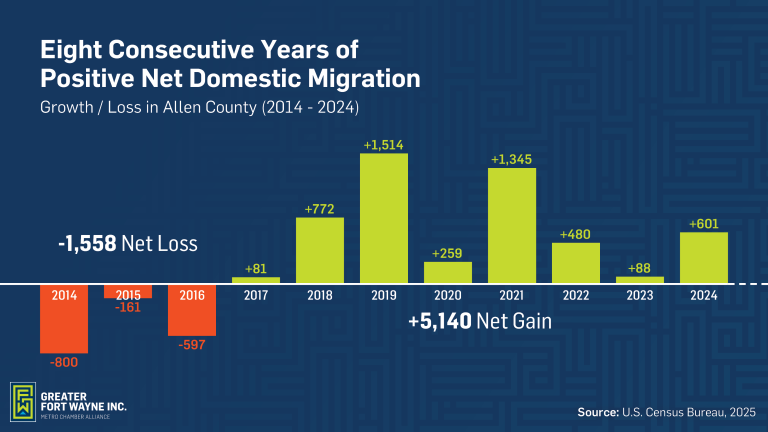
Allen County posts eighth straight year of positive domestic migration
Allen County celebrates 8 consecutive years of positive net migration, reflecting strong growth and a thriving, welcoming community.
Nominations Open for the GFW Inc. Business Excellence Awards
Celebrate Outstanding Businesses and Nonprofits Making an Impact in Fort Wayne and Allen County Greater Fort Wayne Inc. (GFW Inc.) announced Monday that nominations are open for the 2025 Greater Fort Wayne Inc. Business Excellence Awards. These awards honor outstanding...

Welcome to Our February New Members
In February, Greater Fort Wayne Inc. was excited to welcome the following new members. We encourage you to show your support by visiting their websites and discovering more about their work. Auto Collision Service Blueprints Bobay Electric Inc. F45 Training...
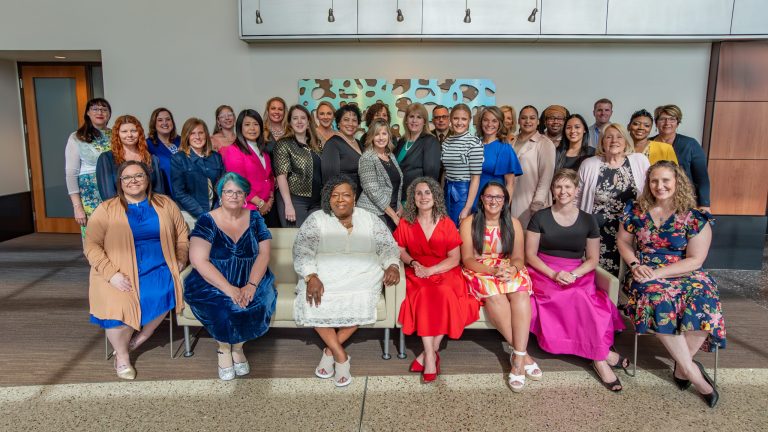
Nominations open for 2025 Champions of Change Awards
GFW Inc. Women’s Network to honor those who mentor and empower women in Fort Wayne and Allen County The Greater Fort Wayne (GFW) Inc. Women’s Network will present its seventh annual Champions of Change Awards this spring. Now through March...
Welcome to our January 2025 New Members
Welcome to Our Newest Members! We’re thrilled to welcome 23 new organizations to the Greater Fort Wayne Inc. membership community in January! These businesses are helping to strengthen and grow our local economy, and we can’t wait to see the...
GFW Inc. welcomes Leadership Fort Wayne Class of 2025
The 67-member cohort is the 43rd and largest class since the start of the program Leadership Fort Wayne (LFW) officially launched the Class of 2025. Greater Fort Wayne Inc. introduced the 67-member class at the LFW Welcome Reception last week,...
Allen County Achieves Historic Growth in 2024
Over $74.7M in New Annual Payroll and $2.6B in Private Investment Showcase County’s Unprecedented Growth Allen County achieved a record-breaking year in 2024, marked by exceptional growth and progress in both economic and community development. With over $2.6 billion in...
Welcome to Our Newest Members in December 2024
As we closed out December 2024, we were thrilled to welcome the latest businesses and organizations to the Greater Fort Wayne Inc. membership! Your commitment fuels our shared mission to build a nationally recognized economy in Fort Wayne and Allen...
GFW Inc.’s Newest Members – November 2024
Greater Fort Wayne Inc. Welcomes Newest Members in November Greater Fort Wayne Inc. is excited to introduce the newest investors who joined our vibrant business community in November. These businesses and organizations reflect the dynamic spirit and diverse economy of...
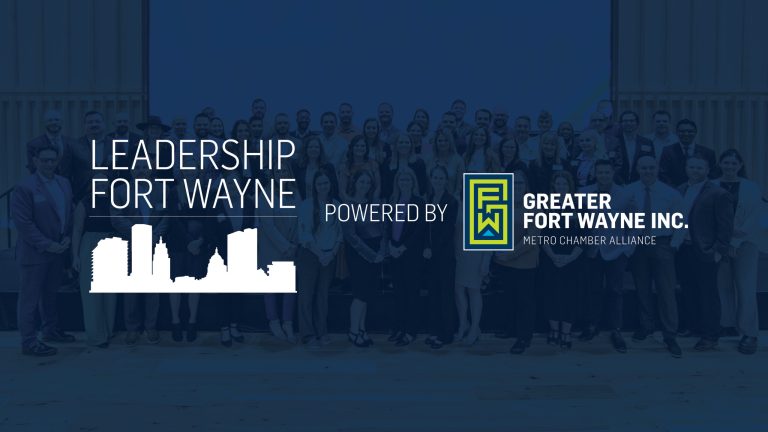
Leadership Fort Wayne Class of 2024 Graduates Celebrate Commitment to Community Leadership
Fort Wayne, Ind. – On Wednesday morning, fifty-nine outstanding individuals celebrated their graduation from the Leadership Fort Wayne (LFW) program during a special ceremony at Greater Fort Wayne Inc.’s annual LFW Alumni Breakfast. This event marked the culmination of a...
Applications now open for Leadership Fort Wayne Class of 2025
FORT WAYNE, Ind. — Leadership Fort Wayne (LFW), the region’s premier leadership development program, is now accepting applications for its 2025 cohort. This highly regarded program is designed to equip and empower participants with the skills and knowledge necessary to...
Welcome to Our August New Investors
Greater Fort Wayne Inc. is excited to introduce the newest investors who joined our vibrant business community in August. These businesses and organizations reflect the dynamic spirit and diverse economy of Fort Wayne and Allen County. We are excited to...
Page 1 / 7
